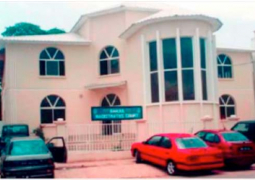The Department of Water Resources (DWR), in collaboration with various stakeholders, Tuesday convened a daylong Water and Sanitation Working Group (WSWG) bi-annual meeting and validation forum for the operation and maintenance framework.
The water and sanitation-working group was reactivated in September 2013 with funding from AFDB through the rural water supply and sanitation project.
The forum, held at the Kairaba Beach Hotel, brought various stakeholders together to validate the report and review the consultancy report on the operation and maintenance of rural water supply facilities.
The principal objective of the working group was to avoid overlaps and duplication of efforts and resources in the delivery of these basic services through organizing bi-annual meetings of the group.
In declaring the meeting open, Ousman Sowe, permanent secretary at the Ministry of Environment, Climate Change, Water Resources and Wildlife, said water and sanitation are humanity’s most precious need. “Water is both a social and economic good,” he added.
The protection and sustainable use of the world’s water resources and access to sanitation facilities is among the most pressing issues facing governments and communities today, he said.
In light of this, he added, the Gambia government and its development partners, such as ADB, IDB and UNICEF are giving attention and rendering all possible support to the provision of these basic human needs.
“Some 75 per cent of our brain is made up of water, and water is the principal vehicle for the transmissions of our body,” PS Sowe said.
According to him, the situation of lack of sanitation is far worse, for it affects about 40 per cent of the global population.
Therefore, he added, the importance of management and coordination of the sectors engaged in the provisions and maintenance of water sanitation services could not be overemphasised.
The group was important in effectively coordinating the delivery of water and sanitation services thereby minimizing duplication and waste of valuable resources, said PS Sowe.
The water and sanitation working group meeting is a forum where stakeholders meet and share information on accomplishments, as well as on planned activities, he added.
“This promotes effective planning; monitoring and evaluation of WATSAN related activities,” he said.
Mr Sowe added that the department of Water Resources is charged with the responsibility of implementing, supervising and monitoring rural water supply programmes and projects in The Gambia.
“Currently, there are over 1,000 solar-powered water reticulation systems in the country, provided by different donor agencies,” he noted.
He said the DWR has also facilitated the signing of management contracts between the beneficiary communities and private sector operators, for the latter to manage and maintain the system on behalf of the communities.
PS Sowe added that the beneficiaries and contractors have agreed on a range of payment modalities, which have been put in place at different sites.
“Sanitation is also an indispensable factor for a healthy population,” he said, adding that without proper care and handing of sanitation issues, “it is impossible to attain any assumed level of health for the population”.
He further added that the proceedings would be used to influence government policy in advocating for effective maintenance of the nation’s WATSAN facilities with regard to water supply and sanitation-related matters.
According to him, the government of The Gambia under the leadership of President Yahya Jammeh is marking all efforts to provide access to basic social services and clean environment for better health, as stated in the Vision 2020 and the MDGs (Millennium Development Goals).
He urged participants to bear in mind that, according to the 2009 report of the World Health Organization and UNICEF, 24,000 children die in developing countries very day from preventable causes like diarrhoea contracted from unclean water, adding that it is estimated that one child dies every 3.5 seconds.



